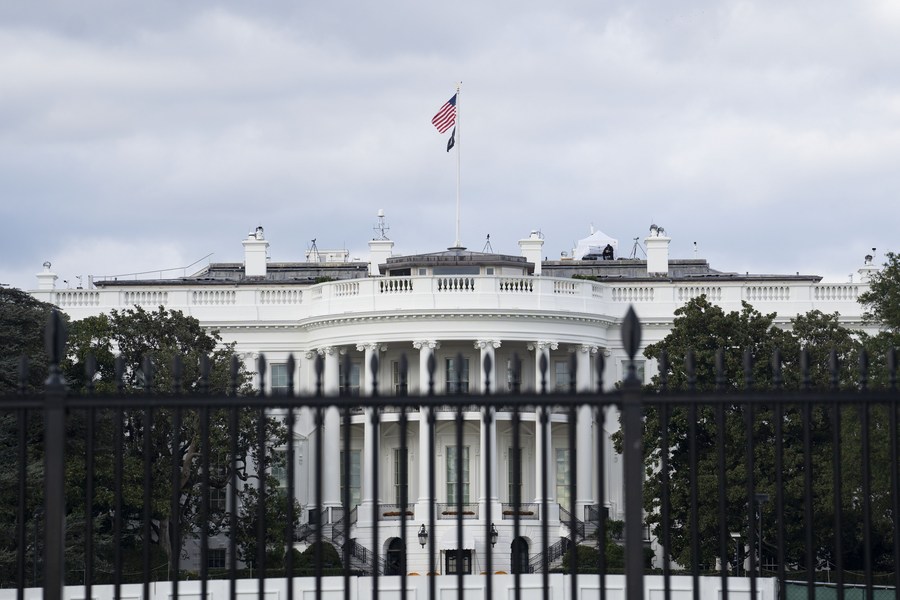White House must drop conflicting goals


The Asia-Pacific Economic Cooperation forum has created a growing and prosperous regional economy through trade and investment liberalization by reducing costs of cross-border trade, assisting businesses and promoting cooperation in technologies. APEC focuses on reducing the gap between developing and developed members and improving the investment environment in the APEC's 21 members that produce nearly 50 percent of the world's GDP.
US President Joe Biden is seeking APEC members' support for Washington's restrictive trade and economic policies toward China and a meeting with the Chinese leader to reduce tensions and improve US-China relations. These conflicting goals are typical of US policies that seek China's support for the US' core interests and goals while the US seeks to undermine China's core interests and goals.
The US wants to get as many of China's 200 trading partner economies as possible to support its geopolitical and economic policies toward China, and to shift the demand for advanced technology products away from China to companies in the US and its allies and partners.
However, APEC members want to trade with both the US and China. They do not want to be forced to choose sides in dangerous economic and technology confrontations between the world's two largest economies and military powers.
Way back in 2010, the Brookings Institution suggested that the APEC needs to be reinvented, because it has "disadvantages" in advancing US policies as the APEC does not require its members to enter legally binding obligations. Instead, it uses a non-confrontational method to promote dialogue and consensus-oriented decision-making among the 21 APEC members, and give equal weight to all members irrespective of the size of their economy. "Requiring consensus is beneficial for representing all members but achieving unanimity between 21 members is difficult and APEC's effectiveness is limited by how fast the group can come together and agree."
For its China policy to succeed, the US needs to persuade or coerce as many other economies as it can into complying with Washington's goal of "decoupling" or "de-risking" from China by changing well-established supply chains involving China.
However, the US' moves to realize its geopolitical goals by imposing economic and financial sanctions on other economies are damaging the economic growth, and increasing inflation, interest rates and consumers' costs of living of the US, China and other APEC members.
The US also wants other economies to comply with its "small yard with high fence" policy seeking to create high-tech trade barriers, in a bid to limit China's ability to compete with the US. But the US' technology war against China is damaging the existing global supply chains of chips and other high-tech products which the US, China and other APEC members depend on to maintain or boost their economic growth.
The US' decision to seek "decoupling" or de-risking from China by building "small yards with high fences" has created opportunities for APEC members to play new, important roles in securing the global supply chains. This has created economic development opportunities for APEC members, which can benefit the US and China, too.
In this regard, the governments of APEC members need to take measures to ensure the US' disputes with China do not have a catastrophic impact on their economic and national security. In recent years the US has not been a reliable trade partner or security provider for countries. Thanks to the Donald Trump administration's "America first" policy, the world came to know the US' economic and trade policies are not politically reliable, and the US has started wars that it couldn't win, and then abandoned its allies in such wars.
What the US has to offer APEC members currently is the demand that "don't trade with China". Since withdrawing from the Trans-Pacific Partnership, the US has not created a forward-looking trade arrangement and nor has it made it clear whether its nascent "Indo-Pacific Economic Framework for Prosperity" will ensure easy market access and create enduring revenue and investment opportunities that the US and its allies' governments and companies need to make risky major investments in.
In stark contrast, China is expanding its economic sphere of influence through the Belt and Road Initiative, creating markets for the goods and services provided by companies of APEC members including China, facilitating advanced communication with the Digital Silk Road, and providing infrastructure financing through the Asian Infrastructure Investment Bank and the New Development Bank, which will increase the APEC members' economic opportunities.
The APEC can use its non-confrontational process to prevent the implementation of the US' geopolitical strategy which seeks to abruptly break the global supply chains, and take measures to ensure APEC members have the freedom to choose Chinese or other countries' technologies according to their individual needs.
Above all, APEC governments need to do what they can to reduce the potentially catastrophic competition between the world's two largest economies. The shared goal of the US, China and the APEC should be "mutually assured prosperity".
The author is chairman of the America-China Partnership Foundation.
The views don't necessarily represent those of China Daily.


































